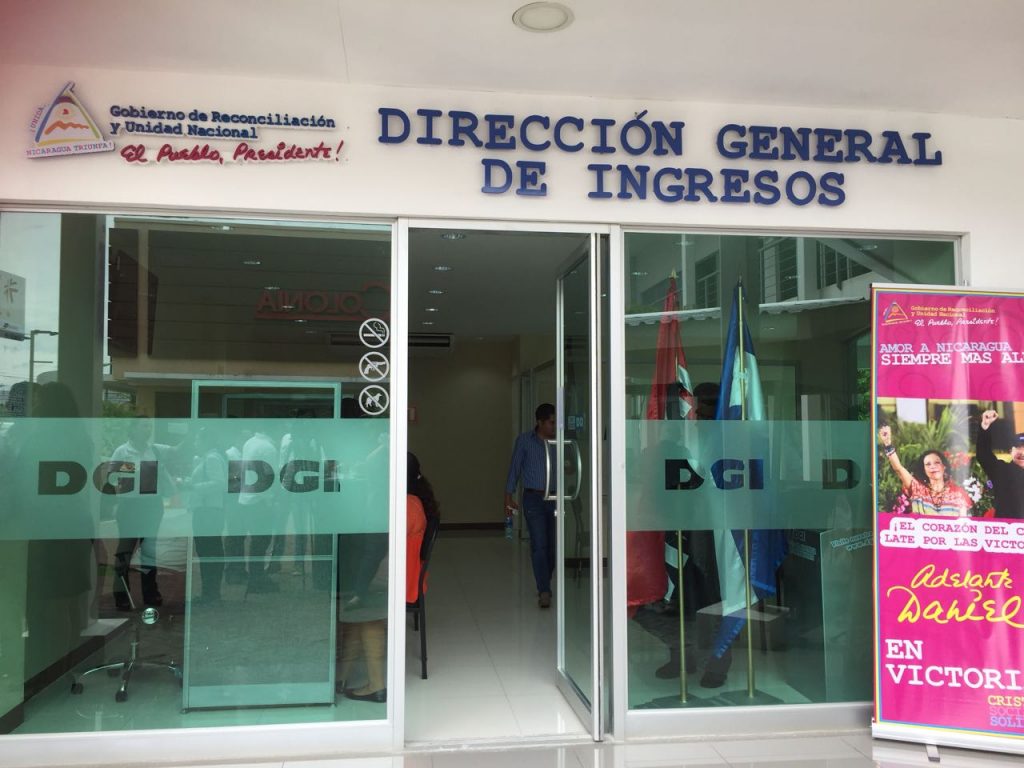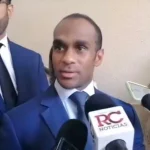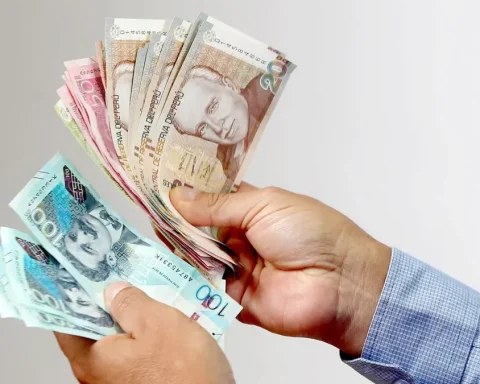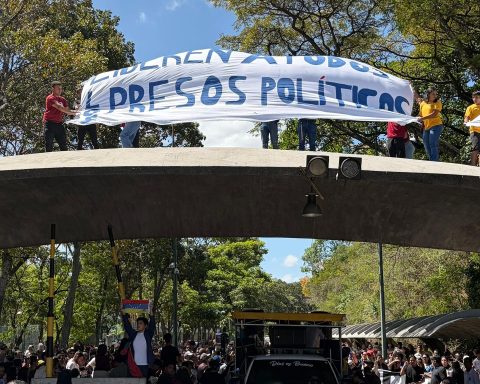“Samuel”, administrator of a company that produces food, at the end of each month is faced with the question of whether he should first pay his workers, his suppliers, the banks… or the Government, while managers of other companies are considering outsource operations, or create ‘satellite businesses’ that pay a fixed fee to continue operating, without paying so many taxes.
“Julio” is a consultant who, at times, attends to investors who want to know if Nicaragua is heading towards totalitarianism like Cuba’s; where does the confrontation between Daniel Ortega and the United States take us, and if that country will impose new sanctions that affect finances or commerce in Nicaragua. The answers to those questions determine, in part, whether they invest here, or take their money to another country where they feel safe.
“Rosa” sees how production costs rise every day (agricultural inputs, equipment, fertilizers, fuels, and more expensive repairs), which limits your ability as an entrepreneur to increase the investment in your property. “Some things went up 200%, and even items like steel and cement continue to rise“, I observe.
CONFIDENTIAL He spoke with managers and entrepreneurs dedicated to commercial, export and agro-productive activities, who agreed to recount their experiences doing business in Nicaragua in 2022, on the condition that their identities be protected and that they be identified only by pseudonyms.
To the economic and political challenges faced by companies operating in Nicaragua are now added bureaucratic obstacles and excessive tax burdens to, in many cases, continue operating, with no other hope than reaching the end of the month to choose who to pay, clear that employees have priority.
A worker who does not receive his pay goes on strike, so there is no one who receives the inputs from the suppliers, nor who transforms them to fulfill the contracts, so there would be no money to pay the banks “which can make you go bankrupt in three months”, warns “Samuel”, emphasizing that the last on that list is the Government.
Defend against the state
By choosing that order of priorities, “Samuel” knows that he runs more risks, but if he has to place someone at the end of the queue of those who will be able to collect, he will still put the public administration last, even knowing that the State will resort to blackmail and threats in order to collect more.
“This scheme is decapitalizing, but also inflationary, because those who can -and not all can- pass part of the cost to the final sale price, so inflation is eating away at purchasing power of the different socioeconomic segments, particularly the poorest. This ‘cascading’ collection scheme benefits those who are on a ‘fixed fee’, so it is unfair competition,” he added.
“Julio”, the consultant, believes that the pressure that businessmen are receiving to order their accounts with the treasury, “is something that has been on the country’s macroeconomic agenda for a long time, and that the International Monetary Fund had been recommending to reduce tax evasion and exemptions.
“Now there is much more cross information that stands out, and leads you to resolve your situation with the treasury, because if before there was an algorithm, now there are ten”, with the result that taxpayers feel harassed.
On the other hand, he admits that “this gives rise to corruption”, with officials offering to ‘resolve’ in some other way, coupled with the fact that there are no communication channels, there is no independent court, and it is no use resorting to lawyers. specialists, and “people are afraid to appeal or protest, because it could be worse for them.”
“Marvin” believes that the establishment of so many regulations with a tax collection mentality makes the procedures more bureaucratic, and customs clearance is increasingly slow, because “everything comes out red, every so often doubts of value are imposed on you, and the tax repairs are the order of the day”.
This businessman told the story of a colleague whose access to the Electronic Tax Window (VET) was blocked, and then they began to ask him for a large amount of information, “as if they were doing an audit”, causing him two months of accounting delay, despite the fact that he had to hire additional staff, just to serve the treasury.
When they finally accepted the documentation “it was with a huge fine. Many times they delay you, just to impose a fineAnd that is not negotiable. The delay generated additional charges to pay permits, guarantees, solvencies of ministries and mayors, which are necessary to acquire some supplies that are exempt from VAT, ”he explained.
The economics of uncertainty
Although the general feeling caused by the situation in Nicaragua is of a certain degree of hopelessness, two of the businessmen used antonyms to describe a future that they both see converging in the medium term: uncertainty and certainty.
“The economic complication that we are experiencing, plus the political context in which we Nicaraguans find ourselves, surrounds us in total uncertainty,” said “Rosa.” On the contrary, “Marvin”, a businessman who sells inputs for production, says that his clients in the agricultural sector are certain that high costs and low income ensure a difficult survival.
“I do not rule out that there are those who end up reducing their activity. If these high costs continue for a long time, and profits continue to fall sharply, what I see is a strangulation, a slow death for our companies. An economic Darwinism”, he said in reference to the survival of the strongest companies.
Let us produce!
“Nicaragua is one of the few countries where fertilizers pay VAT”, claims “Marvin”, explaining how that “excessive fundraising effort… can lead us to a stalemate. This strong inflation, due to the global increase in commodity prices, poses a great risk for the economy”, and for familiesfor which he prays that “the common sense of the rulers be activated.”
“Rosa” explains that the agricultural sector has been losing liquidity due to the lack of public policies that benefit them, but also due to the effects of climate change. She, like many of her colleagues, hopes to “resist and survive” not only those difficulties, but also the ups and downs of politics. “As Nicas, we already lived through this in the 1980s… and we survived it,” she recalled.
“Samuel” details that both agricultural and industrial companies; those that produce to export, or for the domestic market; as well as those that import and distribute, and those that are in free zone regimes, (mostly foreign capital), are suffering “brutal inflation, which includes imported components”, due to the increase in the cost of various elements, such as maritime freight, fuel, gas, etc.
“Even the United States has been affected with high inflation of almost double digits. The increase in interest rates, dictated by the Federal Reserve, will affect us all, because money will be more expensive, and will increase short- and long-term financial costs, both for working capital and for investment,” he reiterated.
Investors view Nicaragua with caution
To the ‘imported’ problems, consequences of the covid-19 pandemic and the war against Ukraine, businessmen must add those that have been in force since 2018, and then, tax reformplus that of pension systemboth in 2019, that “decapitalize us, to the point that formal companies, we are practically working for the State, to pay those high cascading taxes,” said “Samuel.”
“Marvin” describes the new role of businessmen: “we are the treasury’s collection boxes. We are collecting money to pay for mayors, social security, and with so much paperwork from these regulatory governments, so-called facilitators, there is a phenomenal backlog. Many farmers are going their own way, which lowers the taxes they can collect.”
“Samuel” also observes this tax voracity, and for this reason, he points out that “the greater collection that the Government celebrates is detrimental to the real economy, and in the medium term, it means ‘kill’ sources of tax collection and income for social security.
Given that formal employment is very expensive, explains Julio, the consultant, employers are offering ‘contracts for professional services’ to lower the workload; they outsource part of their operations, or simply fired part of the staff, which explains why, despite growth, there are almost 157,000 jobs that have never been recovered, without forgetting that the economy is not creating opportunities for the 50,000 to 60 000 more people who enter every year to look for work, without finding it.
The result is that, although there is investment in telecommunications, gold exploration, free zones, (sectors that have a fluid relationship with the Government), there are other investors who are being very cautious when evaluating Nicaragua, in the same way that there are those who are going from Nicaragua, he emphasized.
Meanwhile, there is no dialogue channel or counterweight with the Government’s policies. “There is an organic silence from the cameras, which are not interacting with the State, or they do so in a very clandestine way, but the truth is that they can’t take it anymore,” said “Samuel.”














